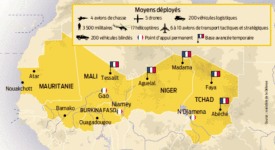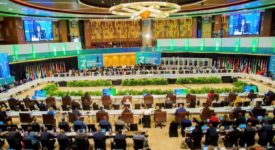In 2015, European and African leaders adopted the Joint Valletta Action Plan (JVAP) – it was created to address the root causes of irregular migration and forced displacement, yet three years down the line, managing migration seems to still have a negative connotation with illegal immigration. This was only one of the steps taken by the EU over the last few years to provide alternatives to irregular migration.Migration Policies
To this end, the Commission has proposed a revised EU Blue Card scheme for highly skilled workers and adopted an EU resettlement scheme for refugees. In addition, the EU has launched a new ‘Africa-Europe Alliance for Sustainable Investment and Jobs’, aiming for the creation of jobs in Africa, but also investing in the mobility of students through the Erasmus+ Programme and the creation of a free trade agreement between the EU and Africa designed to enhance economic mobility. Despite these efforts, the topic does not enjoy broad political support and implementation remains small-scale.
At a multilateral level, legal pathways for refugees have become more constricted. The UNHCR resettlement scheme provides relief for those refugees who have particular needs or vulnerabilities in their country of asylum and cannot return to their country of origin. UNHCR resettlement refers to the relocation of refugees from a state where they have sought protection to a third state that has agreed to admit them as refugees with permanent residence status. However, due to fluctuations in state quotas for resettlement, in 2017 UNHCR faced a 54% drop in resettlement places provided by states compared to 2016. In addition, the number of states accepting UNHCR submissions has decreased from 35 in December 2017 to 27 by the end of September 2018.
This illustrates that, in parallel with the continued focus on border management to eradicate irregular migration, no credible alternatives to these irregular movements are provided. So, as long as there is a lack of legal pathways of significant scale, reliance on irregular migration is set to continue, feeding into the business model of human smugglers, driving up costs for smuggling services and causing migration routes to divert to more hazardous journeys.
At the level of member states, approaches to fighting irregular migration have similarly gained further traction – with Italy proving a prominent case in point. Following its spotlight on Libya as a key transit state, Italy’s recent strategic foreign policy shift to the Sahel has focused on Niger, culminating in the deployment of military troops through its “Bilateral Support Mission in the Republic of Niger” (MISIN). The deployment follows a nine-month blockage by the Nigerien government, highlighting the sensitive nature of a further military mission.
MISIN is setting a precedent as both Italy’s first military deployment in the Sahel and simultaneously the first military mission in the region to focus explicitly on stemming irregular migration. However, the deployment adds to existing missions; France is present in the Sahel with Operation Barkhane, as are the EU’s capability-training mission in Niger (EUCAP Sahel Niger), a recently inaugurated German military air base and an ever-growing US presence. MISIN thereby underlines the pertinence of Niger as an arena of strategic positioning.
Overall, even three years after the adoption of the JVAP, EU and member states alike continue to rely on security interventions to curb irregular migration flows. The existing local grievances, increasing competition and tensions between tribal groups and the expanding number of European countries intervening in the Sahel exemplify that this approach is unsustainable. However, in the absence of regular channels, migration from the African continent will continue to rely on irregular migration movements. This underlines the importance of implementing the second pillar of the JVAP: offering legal pathways as an alternative to irregular migration.
‚EU Migration Policies in the Sahel – Stagnation in a Mode of Crisis‘ – Opinion by Willemijn Tiekstra and Anna Schmauder – Clingendael / The Netherlands Institute of International Relations.
(The Opinion can be downloaded here)







